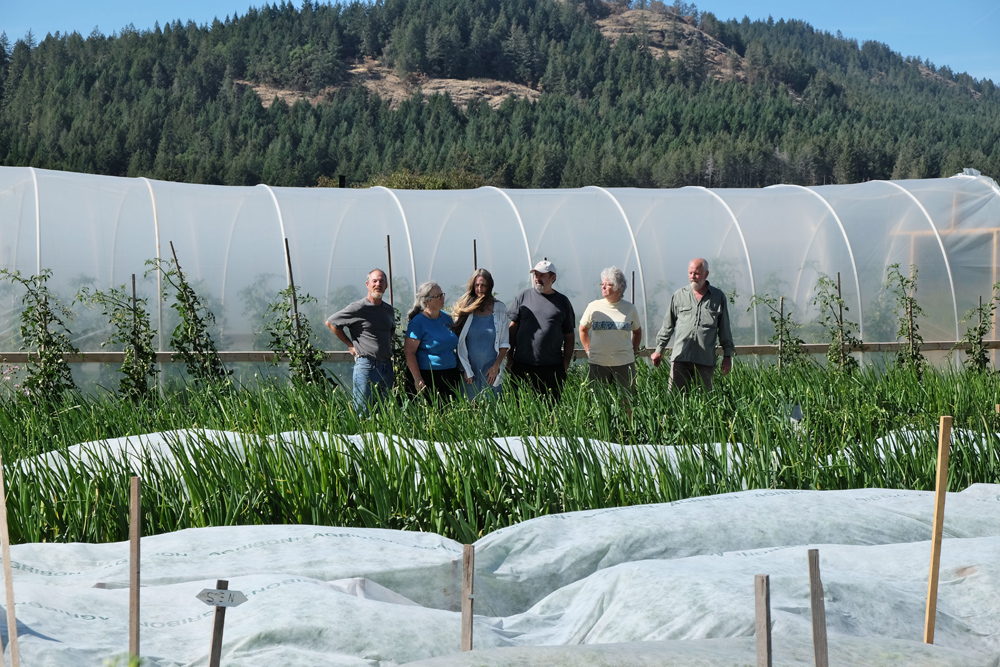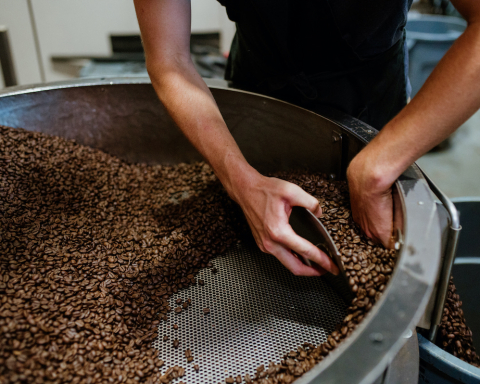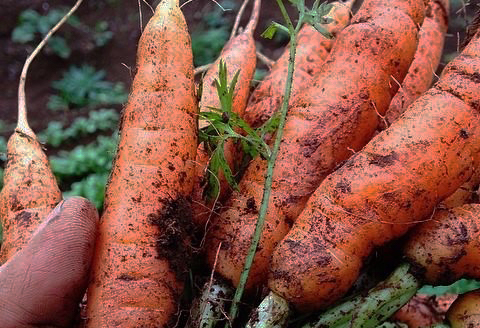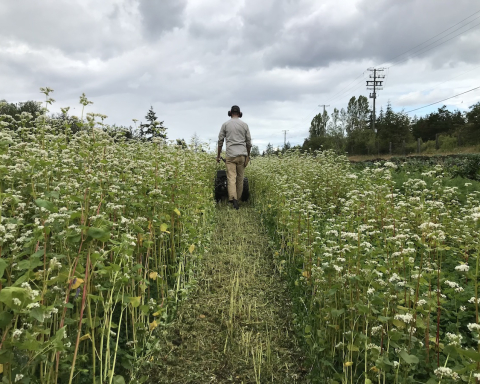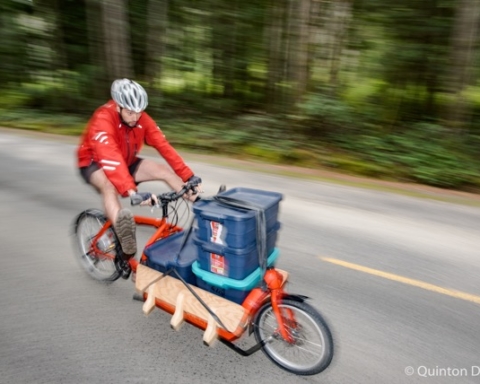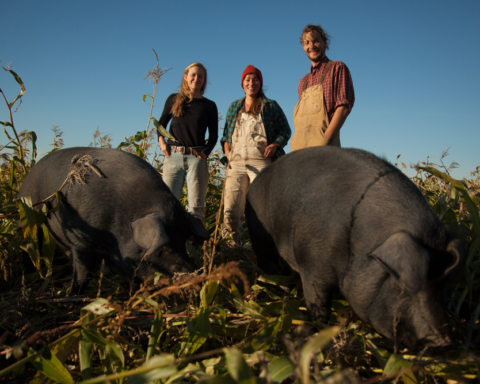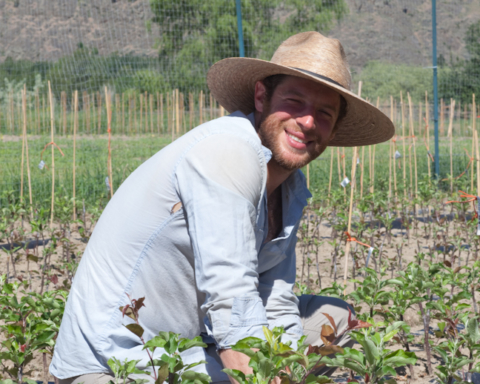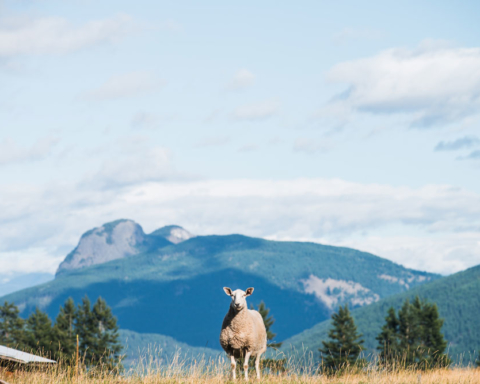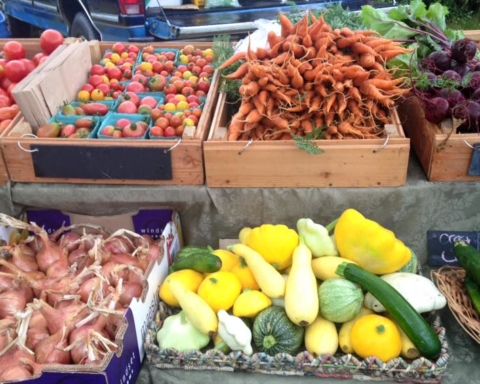Breaking New Ground
Michael Marrapese
Spring is often a time of optimism and renewed expectations. This will be Ariella Falkowski’s first year breaking ground for her new Sweet Acres Farm.She is leasing two acres of land at Lohbrunner Community Farm Cooperative on the outskirts of Langford, BC. She’s still getting to know the land and is excited by its potential. “It’s been really busy,” she says, “but some parts of the field dried up fairly early so I’ve been able to get crops in the ground earlier than I expected. My two projects this month are to finish putting up my hoop house structure and installing the drip irrigation.”
The Lohbrunner Farm is also home to Vitality Farm. Farmer Diana Brubaker and her husband Doug have been growing market vegetables on the property since 2012. When Brubaker first arrived on the property it was held in trust by the Land Conservancy of British Columbia (TLC). Norma Lohbrunner had wanted the 40 acre property with its rich peat soil and rolling wooded hills to be preserved as a working farm and wildlife sanctuary. Brubaker and a group of community volunteers signed on to maintain and enhance the existing crop beds and berry bushes after Norma Lohbrunner died in 2011. However, TLC was facing financial difficulties and the fate of the farm was uncertain.
There were hopes that TLC would still function in some manner and that the group of fledgling farmers could arrange to lease the seven acres they were hoping to farm. “We tried for about four years but it just didn’t happen. Our second option was to buy it,” Brubaker explains. “We were trying to develop a co-op and buy the property. TLC couldn’t do that because they were in the courts trying to resolve their difficulties.”
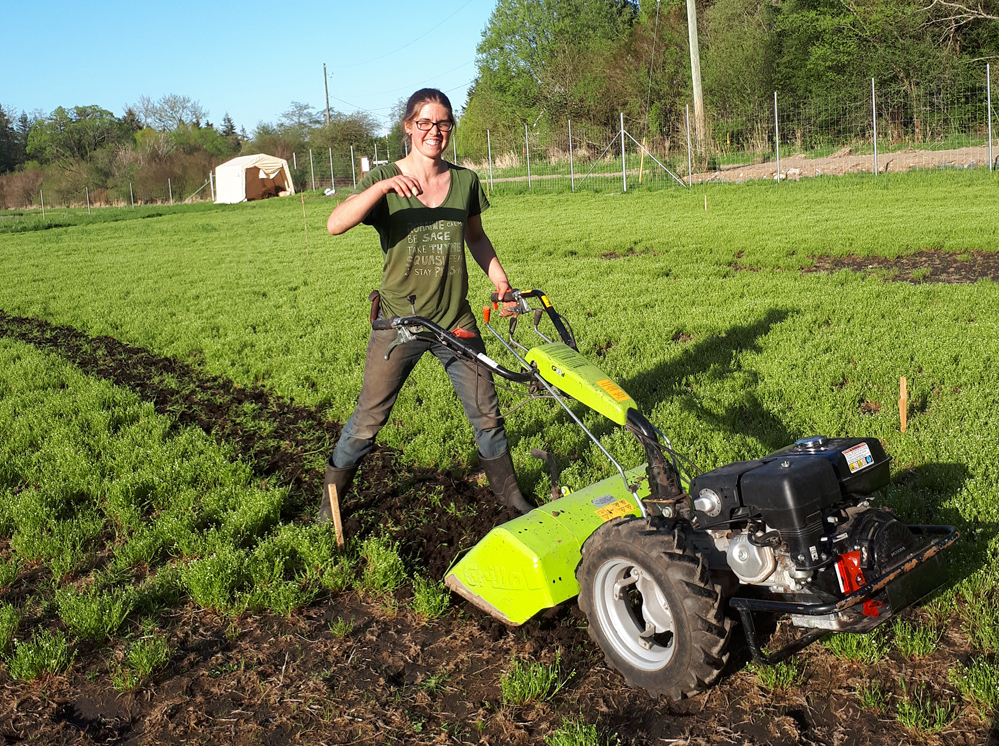
Unfortunately, the process ended up with a court order to put the Lohbrunner Farm and other properties up for sale in order to cover some of TLC’s funding shortfalls. Brubaker and her farming group had to scramble to find another option. “The last option for us was to look for someone to transfer the land to who could hold it as a farm for eternity. That was our main drive: how do we keep this farm as a farm forever.”
The group turned to the newly formed Foodlands Cooperative of BC (FLCBC). FLCBC’s visionary mandate is specifically to hold farmland in trust and ensure that it is actively farmed, managed by a community group, and accessible to the broader community. Heather Pritchard, the co-op developer with FLCBC, notes the process of developing Lohbrunner Cooperative and taking a farm in trust is new ground for all involved. “The leases, agreements, governance processes, and Cooperative structure of Lohbrunner are essentially the template for how other farmlands can be held in trust,” she says. “The lessons learned from Lohbrunner Community Farm will be the basis for other lands held by the Foodlands Cooperative.”
However, FLCBC hadn’t finished incorporating and couldn’t act quickly enough to take the Lohbrunner lands into trust. Pritchard met with funders and stakeholders and arranged to secure the funding and have FarmFolk CityFolk hold the title until FLCBC had fully incorporated and secured charitable status.
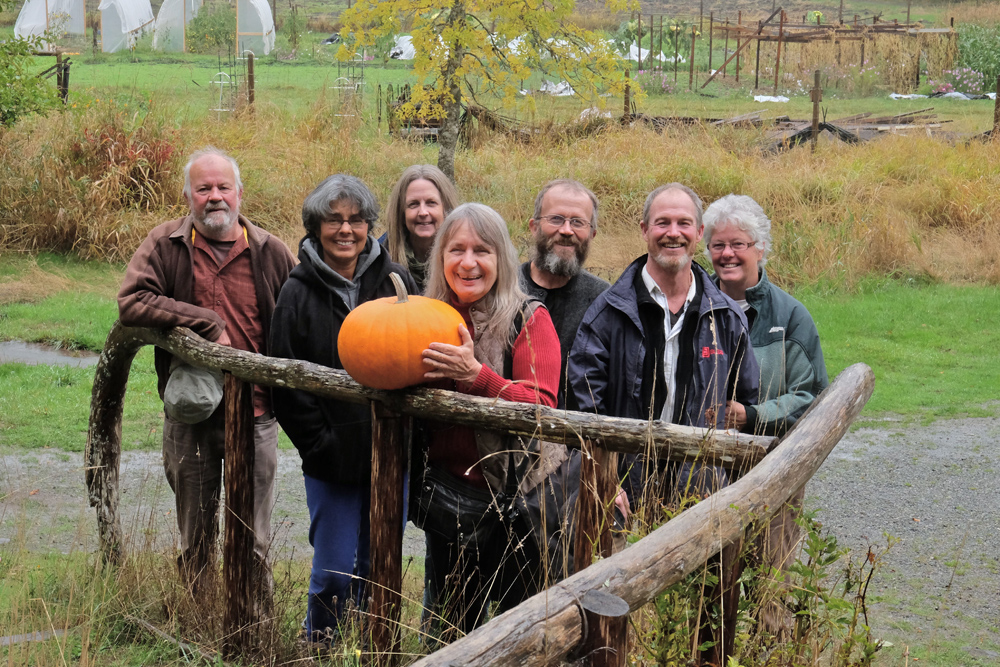
Brubaker recalls that, even though the farm had been secured, the co-op members at Lohbrunner soon realized there was still much to be done. The governance and management structure, the co-op’s constitution and by-laws, and core operating agreements all had to be worked out. “The Foodlands Cooperative has been so supportive in helping us establish our own co-op. It’s given us lots of flexibility to design something that works for us. It’s truly incredible to be in this place of options and choices. We’re extremely blessed,” she says.
While cooperative ownership can be challenging, it has big benefits, particularly when starting a new enterprise. Principally, with the high cost of farmland, pooling personal and community resources can be one avenue to secure financing. Falkowski notes that there are other practical benefits. “One of the things that initially drew me to leasing land at Lohbrunner was the opportunity to have a more stable long-term lease. Another benefit is that we have really helpful co-op members with really different skill sets. Different people have different experience and different connections that they can bring to the table.”
One of the current challenges is securing organic certification. As it turns out, the unusual ownership model has made organic certification more difficult. Initially, the Islands Organics Producers Association (IOPA) was suggesting an incubator farm model but it just didn’t fit. Brubaker reflects that, “the problem seems to be that we’re the ‘square pegs that don’t fit into their round holes’. I really liked the idea an incubator farm model where a new farmer, who doesn’t necessarily have the skills, could be mentored to help them get started. However, when they wanted to move on, they couldn’t take that certification with them—they’d have to start over again.”
Falkowski was involved in a lot of back and forth discussions. She recalls that, “what seemed to make the most sense for Lohbrunner was to certify as three different entities—as Vitality Farm, Sweet Acres Farm, and Lohbrunner Community Farm. One of the benefits of doing it this way is that if I were to leave the property or to lease some additional land elsewhere, my certification number would go with me.”
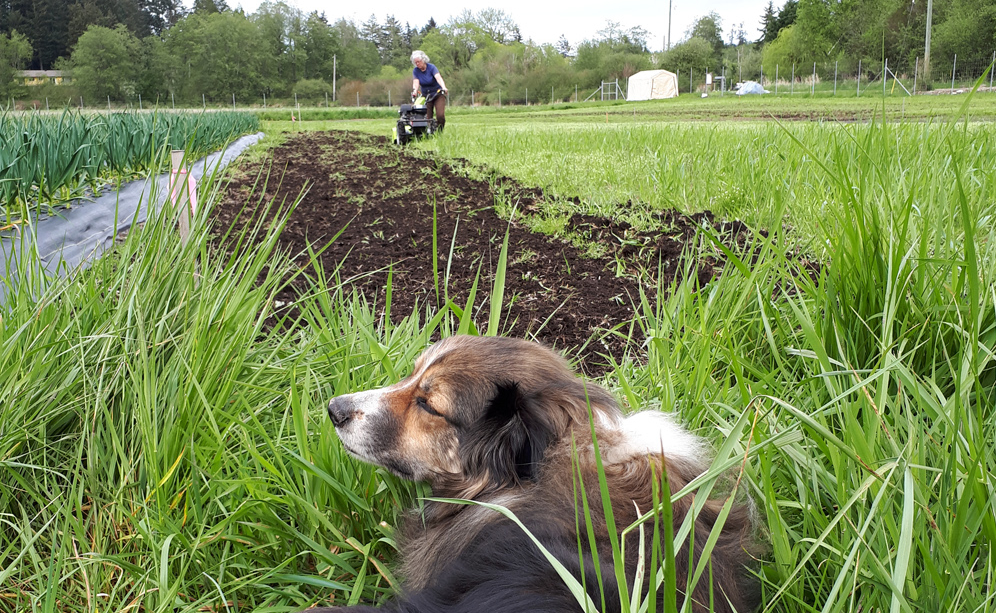
The downside to this process is that each certification will cost $500. “Using this approach we now may have to pay $1500 a year to be certified,” Brubaker says. “At this point, I’m not sure there’s enough revenue off the farm to justify the expense.” The further implication is that when other farmers come onto the property the costs could rise to $2000 or $2500 a year.
Brubaker also finds the certification process particularly arduous for their diverse market vegetable operation. She has many different inputs for the different crops. Chief among them are all the different seeds she purchases—three to four hundred different seeds from different catalogues. “I’ll have to detail why I choose one over the other and whether they are organic or not. If we were just growing one or two crops it would be far less work.”
Despite the difficulties, Brubaker asserts that the certification process has been valuable for her. “As part of my professional career as a leader in health care one of my roles was quality improvement. When I apply those similar principles to the certification process I appreciate that it is a really good process to go through. I look differently now at everything I buy, everything I bring to the farm. I think that, in the beginning, we had the very basic principles of organic farming but this process has taken us a step further.”
Trying new processes and new approaches, breaking new ground, is difficult but in the spring, the season of optimism, it seems possible. “It’s not going to be easy,” she says, “and there are lots of unknowns. We’re hoping this year has more laughter and hugs than tears.”
Michael Marrapese is the IT and Communications Manager at FarmFolk CityFolk. He lives and works at Fraser Common Farm Cooperative, one of BC’s longest running cooperative farms, and is an avid photographer, singer and cook.
Feature photo: The Lohbrunner Farm crew with their garden hoophouse. Credit: Michael Marrapese


